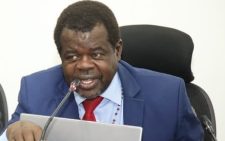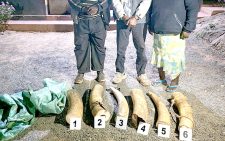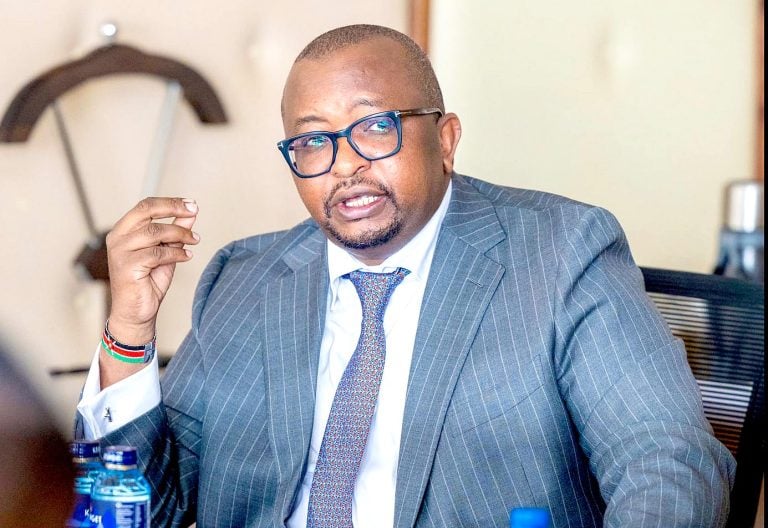Kenyans buy over 400,000 locally made phones since October, says Owalo

Locally assembled smartphones are gaining traction in Kenya, with 390,000 devices purchased since the initiative began in October last year.
Information, Communications, and the Digital Economy Cabinet Secretary Eliud Owalo (pictured) highlighted that the country’s efforts to produce affordable smartphones are progressing well, with increasing market demand indicating the initiative’s potential for significant success.
Speaking during the launch of the Jitume Project at Seme Technical and Vocational College in Kisumu County, Owalo emphasised that cheap devices are key to bridging the technology gap, which has undermined the optimal uptake of government digital services.
“We recognise that many Kenyans still lack access to smartphones. The government, in collaboration with the private sector, has initiated the assembly of affordable Kenyan smartphones locally. This means we won’t need to import phones from countries like China or Korea,” he stated.
The Neon brand handsets, retailing at Sh7,499 per unit, are available at all the Safaricom branches or the Jamii Telecom shops countrywide.
“These smartphones come with all essential features, allowing users to access government services conveniently from anywhere. There will no longer be a need to visit government offices in person,” Owalo added.
The CS assured Kenyans will benefit from efficient and effective government services without the need for personal connections in government offices.
“It will be a direct interaction between you as a Kenyan, your phone, and the government. You won’t need to know anyone in a government office to access these services. You will be able to apply for an ID or a passport virtually,” he explained.
Digital transformation
To further the digital transformation agenda, Owalo mentioned that the government has partnered with Kenya Power Company (KPC) to expand fibre connectivity, ensuring reliable and sustainable internet access across the country.
Since January 2023, the government has installed approximately 11,000km of fibre optic cables, with a target to reach 100,000km of fibre by 2026.
“We are shifting from the traditional method of laying fibre cables underground, which is prone to vandalism. Instead, we will utilise KPC transmission lines,” Owalo said, adding that KPC has already engaged 300 contractors, distributed evenly across the country, to begin the project.
Owalo disclosed that a total of 17,017 government services have been digitised on the e-citizen platform to enhance efficiency in service delivery.
Owalo revealed that the numbers have risen from only 350 services initially available on the platform.
He said most Kenyans, including those in foreign countries are able to access a number of government services digitally on the e-citizen platform.








